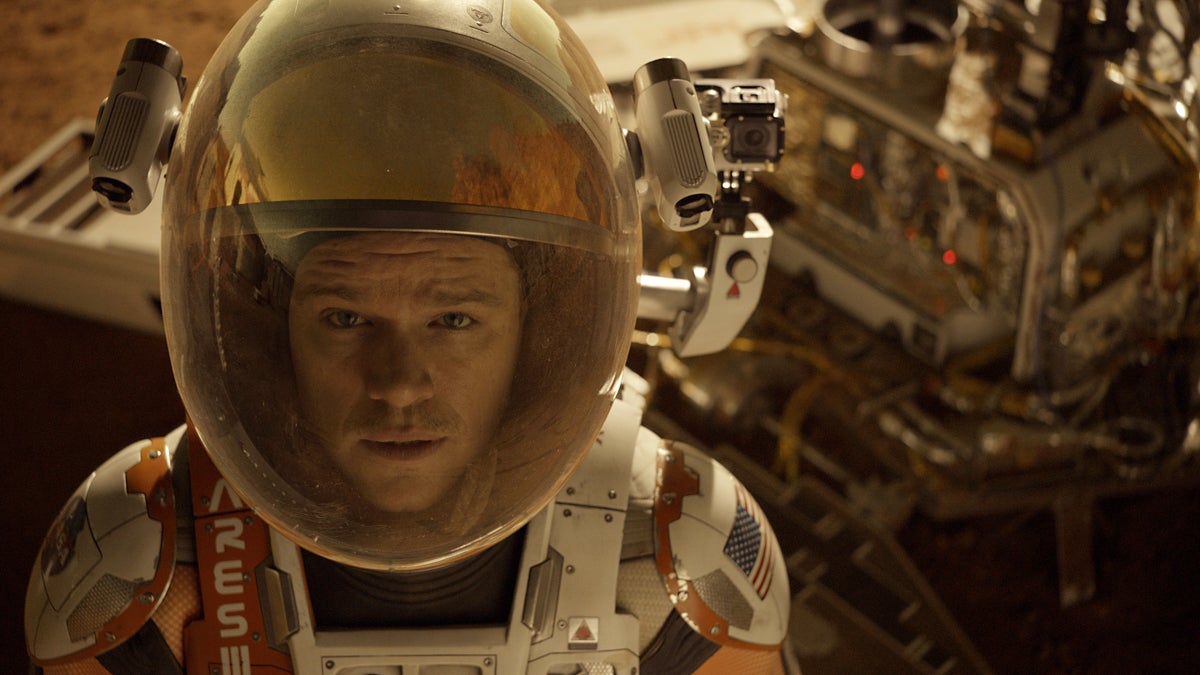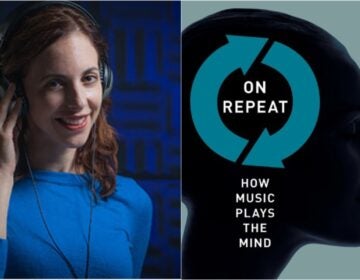Science can make blockbuster movies better
Listen 7:49
Astronaut Mark Watney (Matt Damon) finds himself stranded and alone on Mars
Hollywood directors have a direct line to consulting scientists.
Let’s say you’re a filmmaker. You want to put a little science in your movie, and you want to make sure the film doesn’t land on a list of “science done wrong” movies.
The number to call is 844-NEED-SCI. It goes to the Science and Entertainment Exchange, a program from the National Academy of Sciences that connects people in the entertainment industry to scientists.
They’re happy to help you fact-check your movie, but the program does more than that.
“A common consult for us is literally just half an hour on the phone with a … theoretical physicist and someone who’s working on a time-travel movie,” says Rick Loverd, the program director of the Exchange.
“We highly encourage people to, where possible, actually go meet and have a beer and have an informal conversation … just the introductions are incredibly important, because these are the people who have that giant media machine, are involved in it, and therefore, they can change the perception of a scientist just in the way that they choose to write those characters.”
That matters, in a time when most Americans cannot name a living scientist, Loverd says.
“I constantly am getting the sort of note back from Hollywood, like, ‘Wow. I was really surprised how like, how hip that scientist was.’ And you know, scientists and engineers, they are, they are hip,” he says.
His colleague Ann Merchant points to the Exchange’s work on the Marvel TV show “Agent Carter,” about a popular character from the “Captain America” movies. The program connected the TV writers with Clifford Johnson, a physicist at the University of Southern California.
“They wanted to speak to a physicist. We introduced them to Clifford. I can’t say he’s African-American because he’s British, but he’s black …. Well, the character then was written as a black man,” she says. “They said, ‘Yeah … we had him in our head after that.’ So we know that by making these introductions, that they impact story, and that they impact character.”
Clifford Johnson most recently consulted on the upcoming Marvel movie “Thor: Ragnarok,” and he says that sometimes, his fellow scientists are wary of working with Hollywood.
“There’s perhaps a perception that I’m sort of goofing off with my Hollywood buddies when it comes to things like movies,” he says.
Scientists worry Hollywood filmmakers won’t take their advice even after consulting them.
Merchant and Loverd from the Exchange both say that their scientists are not the science police, but there are cases where experts feel Hollywood storytelling is misleading, perhaps even harmful.
For example, the recent M. Night Shyamalan movie, “Split,” is about a man with dissociative identity disorder, which used to be known as multiple personality disorder. (The Science and Entertainment Exchange did not provide a consultant for the movie.)
The movie character abducts three teenage girls.
Clinical psychologist Bethany Brand studies and treats people with dissociative identity disorder, and she says the portrayal in the movie is “just not the reality of what the disorder is like in almost all cases.”
“If I had this disorder and I saw this movie or even just saw the trailer, I would be profoundly ashamed,” she says. “I’ve absolutely heard that from my patients and from other patients, they feel much more like they have to hide their disorder, and that may deter some other people from going in and getting treatment. When Hollywood’s doing that with films, they’re doing all of us a disservice.”
She says people with the disorder don’t typically harm other people; but they are at higher risk of harming themselves
“I’ve heard about a number of patients around the world who’ve heard from their friends, ‘When are you going to switch? When is your murderer part going to come out and get me?’ And their friends and loved ones aren’t always joking,” Brand says.
I contacted director M. Night Shyamalan for an interview and did not hear back.
Brand says obviously this movie isn’t a documentary, but she also says there’s no reason why the director and stars can’t talk about the real disorder when they promote the movie.
There’s going to be a sequel to “Split,” and she says she would be happy to help out with the science.
But Rick Loverd from the Exchange says that, by and large, Hollywood writers do care about getting the science right. Clifford Johnson says “Agent Carter” was an almost-perfect model for how a collaboration would work, because he was involved early on in the production process rather than coming in at the last minute to help with the set decorations. He says we could see more examples like this, especially with the rise of long-form TV, allowing for more time in telling scientific stories.
As one example, he points to the new National Geographic channel show “Genius,” about the life and work of Albert Einstein. Johnson consulted on that show, too. He recalls the writers of the show telling him they did not want to separate Einstein’s home life from him in the office scribbling at equations.

“I was really happy to hear that, because of course that’s not how it works. A scientist is a scientist all the time. You don’t turn it off,” Johnson says. “In fact, they even use that phrase in one of their scripts after I told them about that idea.”
He also mentions a scene from the second episode with Einstein and his first wife Milleva, where they’re talking about atoms and molecules and thinking about how they work. As they imagine molecules bumping into each other as part of kinetic theory, we see a scene from Milleva’s childhood where her classmates are bumping into her in a corridor, making fun of her for being a girl interested in science.
“That’s a wonderful way of getting a scientific idea into the discussion, while at the same time talking about the personal story, something that meant something very deeply to one of the characters, and we feel for her, because we feel those bumps. And those bumps are also the bumps of molecules on each other,” Johnson said.
Collaborations between Hollywood and scientists will “help us be more comfortable talking to each other,” he said. “It’ll help filmmakers be more comfortable in just picking up the phone and talking to a scientist, which I think is still, unfortunately, a rare thing.”
WHYY is your source for fact-based, in-depth journalism and information. As a nonprofit organization, we rely on financial support from readers like you. Please give today.







